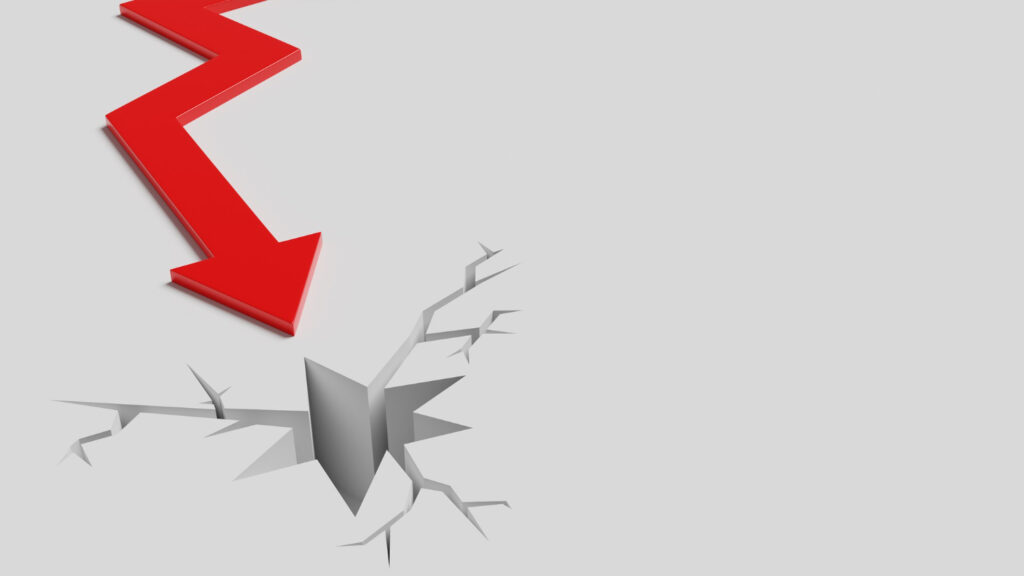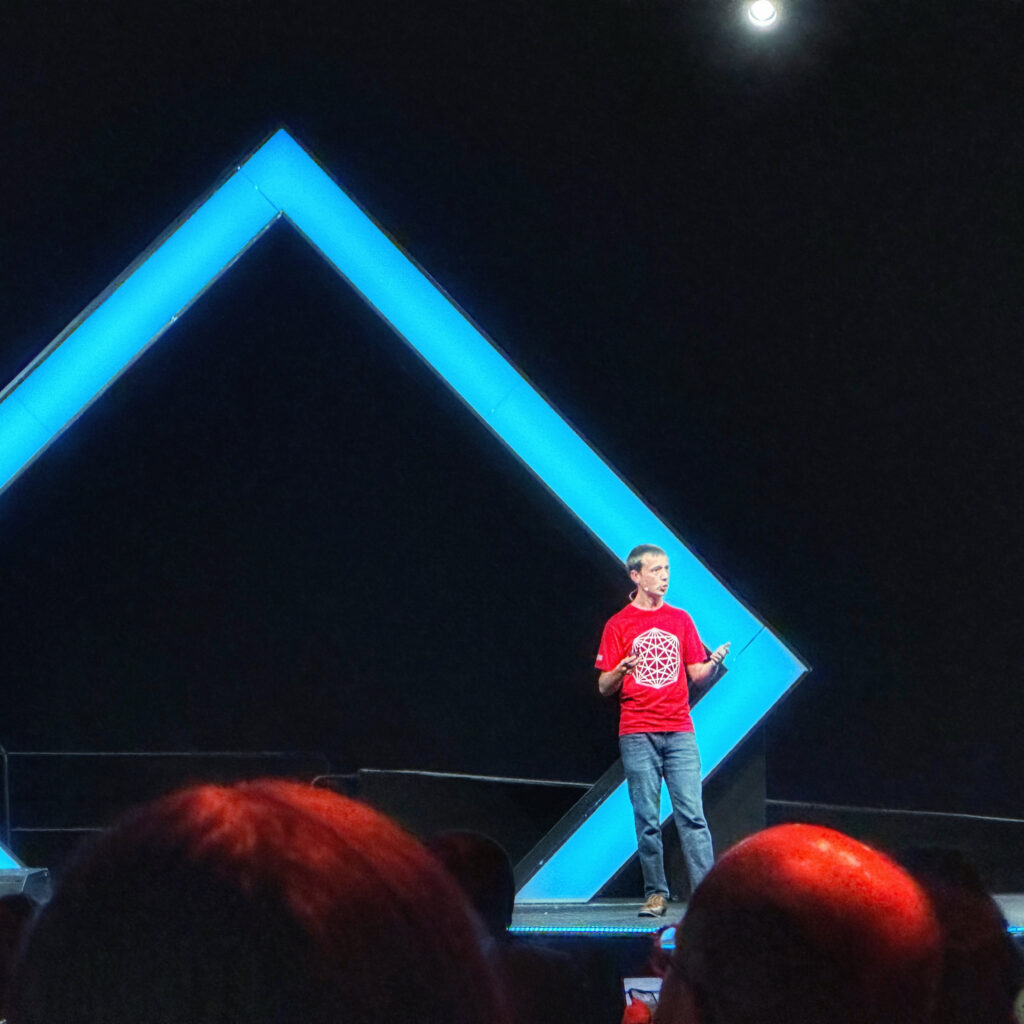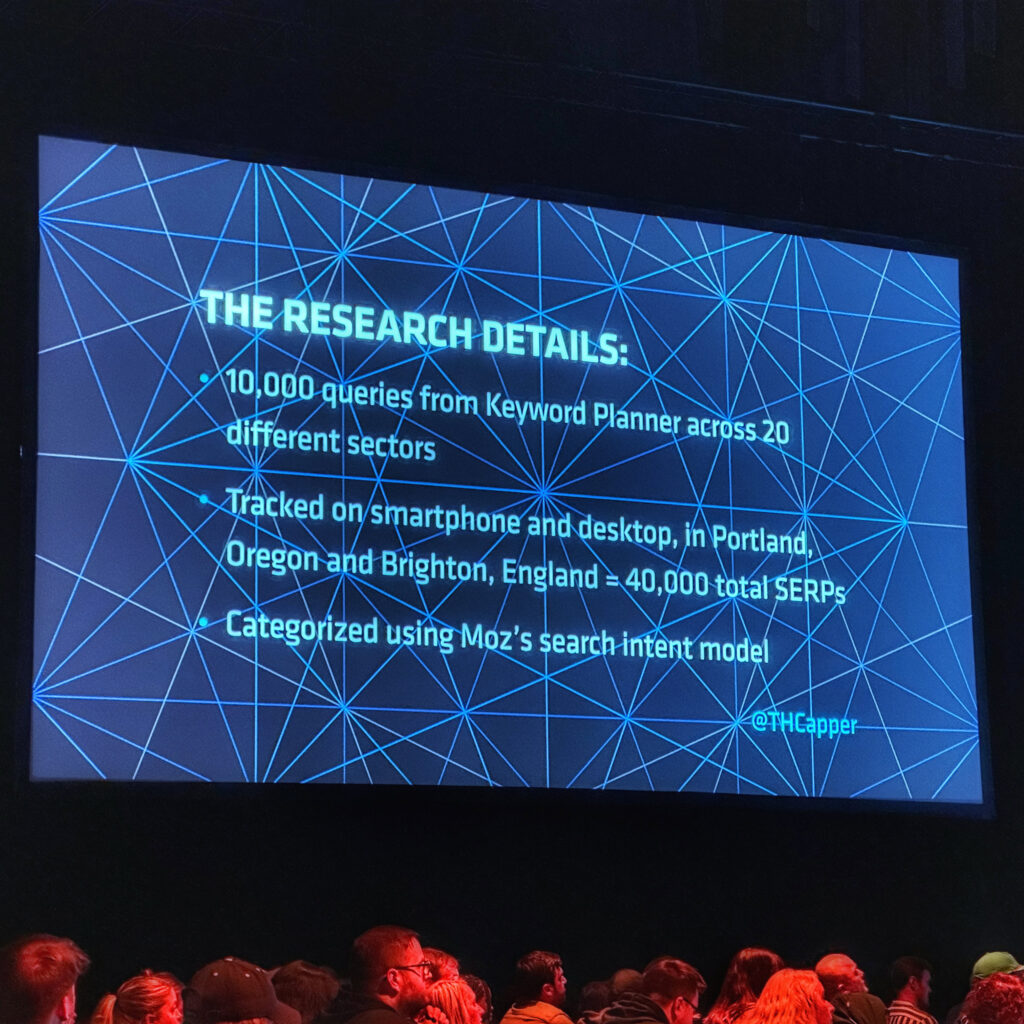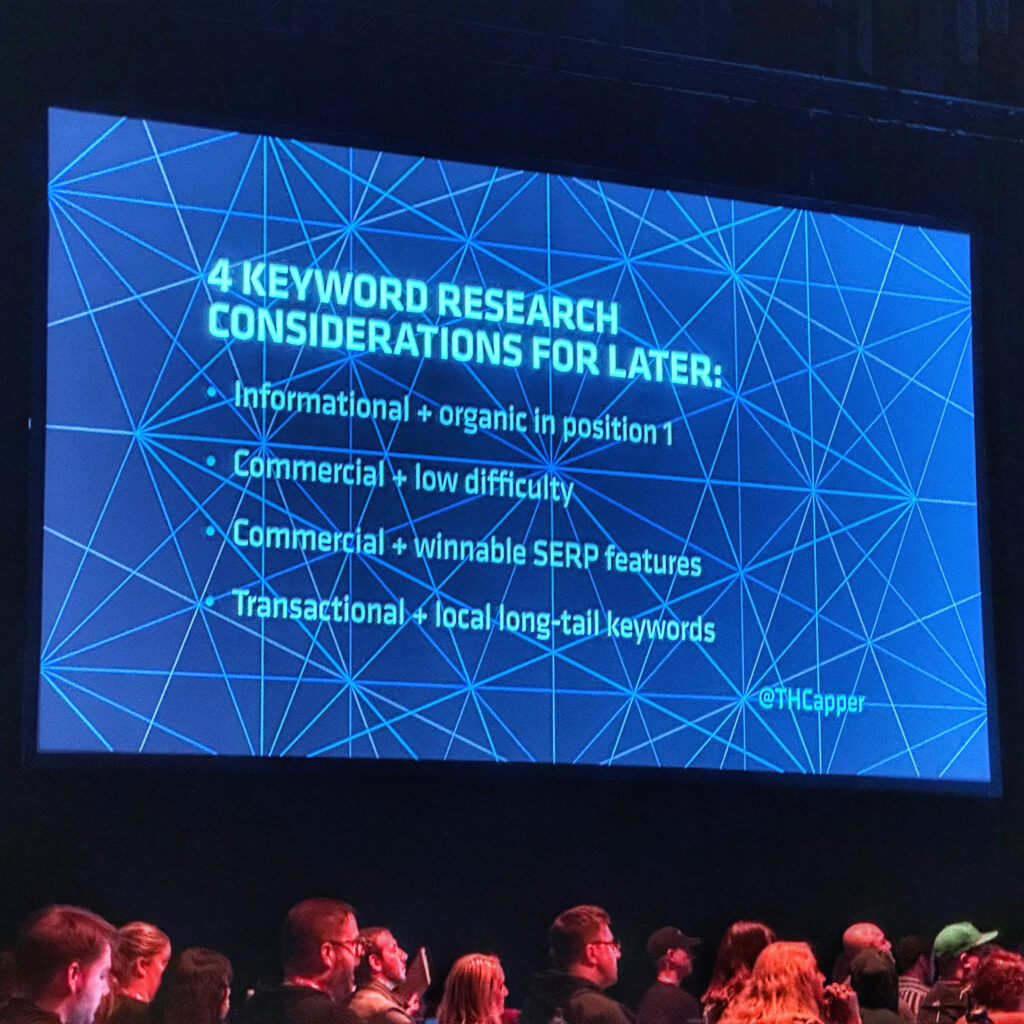

Last updated on

Could organic SEO soon become obsolete? That’s the notion put forth by a search expert’s evaluation of Google’s AI-driven disruptions.
During MozCon’s 20th annual conference, Tom Capper, Moz’s Senior Search Scientist, delivered a reality check backed by data.
Capper cautioned attendees, stating, “By the end of my presentation, I’ll argue that achieving comprehensive organic marketing results is becoming increasingly difficult in 2024, particularly for most businesses.”
He analyzed how Google’s AI-generated overview results, aggressive monetization strategies, and shifting search intents present hurdles for companies dependent on SEO.
Furthermore, in an exclusive interview with Search Engine Journal, Capper outlined potential pathways for those open to adapting their strategies.

Capper began by tracing the emergence of various search “intents,” such as informational, navigational, commercial, and transactional queries.
He pointed out that Google’s new AI Overview feature, designed to provide direct answers at the top of search results, has posed a significant challenge, particularly for informational searches.
Capper emphasized, “Achieving organic visibility for informational intent is exceptionally challenging.” He backed this statement with data showing that informational searches have the smallest share of voice for traditional organic results, primarily due to AI Overviews and other SERP features.

Highlighting a notable statistic, he mentioned that 21% of informational searches now display a Featured Snippet result, effectively meeting users’ needs without requiring a click-through.
In a straightforward manner, Capper remarked, “Essentially, competing at the top of the funnel is nearly impossible.”
During the exclusive interview, Capper expressed concern that Google’s swift adoption of AI overviews might have adverse effects on the company’s brand perception:
“I believe Google has moved too hastily in implementing this, and yes, I do see it as a misstep. This situation carries some risk for SEO because if Google faces setbacks, it could disrupt our entire industry.”
While the outlook appears bleak for informational content, Capper highlights commercial searches as a promising area.
Nevertheless, these crucial mid-funnel inquiries have evolved into a fiercely contested battleground, marked by turbulence.
Commenting on recent developments like the Google product reviews update, Capper remarked, “Commercial searches are where much of these [Google’s search quality issues] unfold… it has become an exceptionally volatile domain.”
Commercial results are heavily influenced by major platforms such as Amazon, Reddit, and YouTube, alongside a plethora of price listings and review-rich outcomes. This dominance sets a high standard for smaller sites aiming to secure a ranking.
Capper suggested exploring niches like arts, hobbies, or real estate, which offer more realistic opportunities for competition.
He cautioned publishers who solely focus on easily answerable queries, stating, “If that’s been your strategy, chances are you’ve been struggling for a while… If you’re not open to diversifying your content strategy, then perhaps it’s time to explore alternative channels.”
Towards the end of the funnel, Capper characterized transactional searches as “pay-to-play, unless you operate a brick-and-mortar establishment.”
Google’s advancement in monetizing product listings and its trials with map embeds for transactional searches are progressively diminishing organic exposure.
Nevertheless, Capper underscored local SEO as a hopeful avenue, expressing:
“Even in the face of a potential AI Overview rollout, excelling in local search can ensure continued success.”
Despite the hurdles presented by AI-driven search functionalities, Capper remains optimistic about the potential for organic marketing triumphs. He provides the following suggestions:

When asked for advice for SEO professionals feeling disheartened by the AI search revolution, Capper advocates for adaptation and a focus on crafting high-quality, authoritative content.
In an exclusive interview, Capper remarked:
“If you’re willing to create something more compelling, there’s still room to excel organically.”
Overall, Capper maintains optimism regarding the future of organic search. He highlights Google’s reliance on directing organic traffic to other sites, stating:
“I don’t foresee Google completely halting the flow of organic traffic because, fundamentally, that’s its business model. Users anticipate being directed to other websites when they search on Google; without this expectation, ad clicks decrease, impacting Google’s revenue stream.”
Although it’s increasingly difficult to secure organic rankings for informational and transactional searches, Capper’s findings indicate that there are still openings within commercial and local contexts. To adjust, he suggests concentrating on less saturated commercial topics, utilizing local SEO strategies for transactional inquiries, and developing content that goes beyond mere answers to fundamental questions.
Original news from SearchEngineJournal